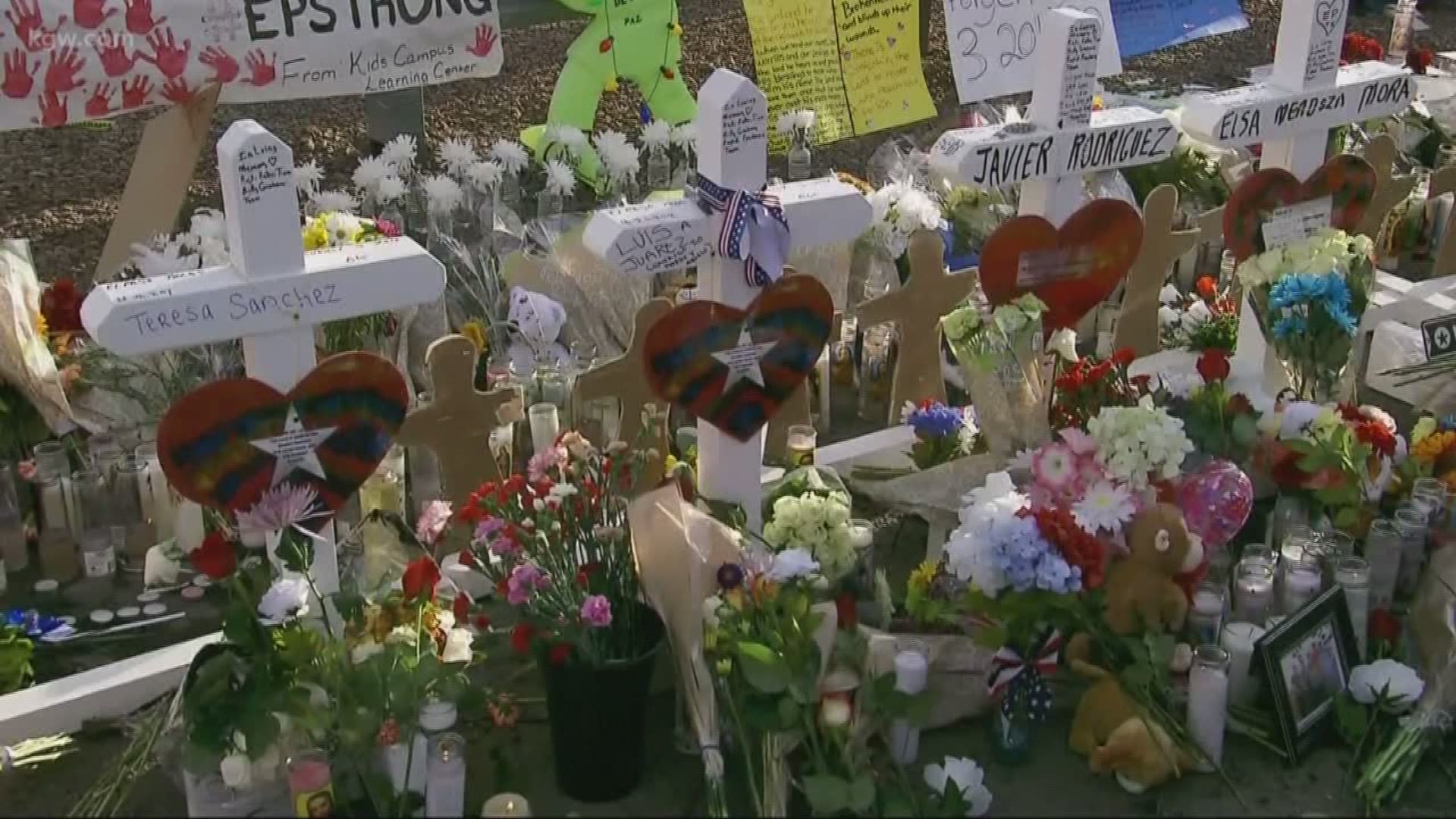PORTLAND, Ore. — Following this weekend's mass shootings, a number of politicians, including President Trump, have said this violence highlights the need for changes in our mental health laws.
After speaking with professionals in the field, we learned mental illness is not the main driver of mass shootings.
In condemning the senseless tragedies that have rattled the nation over the past week, President Trump called psychiatric patients "mentally ill monsters."
Mental health experts are pushing back against the link between mental illness and gun violence. Data shows the overwhelming majority of people with mental illness are not violent and they're far more likely to be victims than perpetrators of violence.
A 2015 study found about one in five people who committed or attempted to commit mass killings could be considered as having a mental illness. In a similar finding, a 2018 FBI report found 25% of active shooters had been diagnosed with mental illness.
But a recent United States Secret Service report on mass public attacks in 2018 did find two-thirds of attackers in the study showed signs of mental health issues. It says the most common signs were related to depression and psychotic symptoms, along with suicidal ideology. Nearly half of the attackers had been diagnosed with or treated for mental illness prior to their attacks, according to the study.
The study points out, however, mental illness alone is not a risk factor for violence and most violence is committed by people who aren’t mentally ill. Other attackers displayed behaviors that don’t indicate mental illness, but show the person was experiencing some sort of distress or emotional struggle: they were persistently angry, couldn’t cope with stressful events, or were increasingly isolated.
Mental health experts KGW spoke with said mental health and illness are not synonymous.
“In other words, people can have challenges with their mental health but not have an illness. And that really is the group of people who appear to have revenge fantasies. They might have narcissistic personalities where they view the world based on their own experience and have trouble empathizing or understanding what somebody else's experience might be,” said OHSU director of child & adolescent psychiatry Dr. Ajit Jetmalani. “They’re the ones who are most vulnerable to getting caught up in the racist and other activities online that draw people in to project blame onto society or specific groups.”
There isn't just one explanation for violence of this scale. Dr. Jetmalani said complex pathways and stressors build over someone's lifetime that can lead them to this point, including struggles with how their personality develops, how they regulate emotions, how they navigate challenges, and whether they use other people to seek support.
“When we think about these mass shootings there isn’t one explanation for each of these events. These are the culminations of lives of people who had very different pathways to where they got to. And we have not had adequate opportunities to study these topics,” Jetmalani said.
Social isolation is a common key factor.
While exposure around mental health access and treatment is positive, Jetmalani says blaming mental illness for mass shootings is a dangerous road to go down. The rhetoric isn't accurate and it oversimplifies mental illness and its role in mass shootings, he said, while amplifying the stigma. He said we have a false assumption that underlies the comments we’ve been hearing from politicians.
“The assumption is if you could identify somebody as having a mental illness we could quickly say, OK, they have a mental illness and they need to see a doctor and get treatment. Now, we don’t have to worry about another shooting or adverse outcome,” Dr. Jetmalani told KGW. “The risk, because we don't understand the problem fully, is to come up with a solution that is inadequate. And people who do have mental illness associated with this horrific notion of mass shootings will then be less likely to seek care or identify they have a mental illness themselves.”
That stigma is dangerous because people may not seek they care they need.
KGW also spoke with well-known criminologist and the chair of the Oregon Coalition Against Hate Crimes, Dr. Randy Blazak. He agreed with the positives surrounding raising awareness, but said there is danger in jumping to link mental illness with mass shootings.
“Creating larger awareness of the complexity of mental health is part of it but there’s also this danger of seeing those experiencing mental health issues as a monolithic boogie man in our society who are at risk of killing us at any given moment, when in fact it’s exactly the opposite,” Blazak said.
The United States is ignoring gender and the idea of “maleness” in our society in the conversation, Blazak said. We tend to blame mental illness, especially if the shooters are white men, he said.
Other countries have the same rates of mental illness as the US, but they do not have the same rates of violence.
“It’s a complex issue. We're always looking for sort of one solution to it and different types of shootings have different motivating factors. The shooting in Ohio is different from the shooting in Texas because of different conditions that led up to it. But there is this sort of hyper-masculine obsession with violence as a sort of problem-solving mechanism - gun violence especially. The access not only to guns, but guns with high-powered magazines.”
In talking about solutions to this epidemic, Dr. Jetmalani said we need to be thinking about these two things: addressing quick and easy access to firearm and building a society that doesn't produce these outcomes.
“Through early childhood and school-based strategies to build people who are capable of regulating emotions, forming relationships, holding a job, and maintaining sense of right and wrong even when they’re under stress," Jetmalani said.

